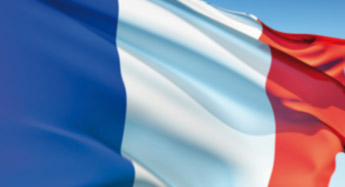French health industry, agreements & gifts
July 2013
In France, two sets of rules apply to the enterprises operating in the medical sector when dealing with health professionals, their organizations and health care institutions.
- The first rules are those of the Anti-Gift / Anti-Bribery Act, introduced in 1993 and recently reinforced by a law voted on 29 December 2011. The Anti-Gift Act is codified by Articles L. 4113-6, R. 4113-104 et.seq. of the French Public Health Code.
- The second rules are those of the Sunshine Act, introduced by the law of 29 December 2011. The Sunshine Act is codified by Articles L. 1453-1, R. 1453-2 et.seq. and D. 1453 - 1 of the French Public Health Code1.
 As a general rule, both the Sunshine Act and the Anti-Gift Act are designed to control (i) the agreements which are concluded between the industry, on one side, and health professionals and their organizations, on the other side, as well as (ii) the advantages that the latter might receive.
As a general rule, both the Sunshine Act and the Anti-Gift Act are designed to control (i) the agreements which are concluded between the industry, on one side, and health professionals and their organizations, on the other side, as well as (ii) the advantages that the latter might receive.
A recent administrative decree enacted on 21 May 2013 introduces the implementation measures necessary for the enforcement of the law of 29 December 2011. In addition, an administrative circular enacted on 29 May 2013 by the French Health Ministry specifies the implementation measures of the decree of 21 May 2013.
The purpose of this article is to highlight the main provisions of the recent French Sunshine Act.
French sunshine act
Who – enterprises & professionals
Enterprises concerned by the Sunshine Act
Irrespective of their place of business and of their nationality, the enterprises concerned by the Sunshine Act are those which produce or commercialize the products which fall within the scope of the control of the French health agency (equivalent to the US FDA)2. Other enterprises concerned are also those providing associated services to said products. Said products are in particular pharmaceutical products, medical devices (including in vitro medical devices), human cells, cosmetics, medicinal plants, etc.
Health professionals & organizations concerned by the Sunshine Act
The beneficiaries of the agreements and advantages concerned by the Sunshine Act are the following professionals, students and organizations operating or established in France:
- Healthcare professionals (medical doctors, dentists, midwifes, pharmacists, nurses, etc.);
- Organisations of said professionals the purpose of which is related to their activity;
- Students intending to become healthcare professionals as well as their organisations;
- Authorized patients organisations;
- Hospitals and other health care institutions;
- Foundations and learned societies operating in the health sector;
- Consultancy firms operating in the health sector (to the sole exception of consultants which are governed by specific ethical regulations, such as lawyers, accountants etc.);
- Media, radio, television, on-line communication companies targeted at the health sector;
- Companies marketing medical prescription software;
- Legal entities in charge of the education of health professionals (universities, institutes, etc.).
What - data to be disclosed
Agreements
All agreements concluded between the enterprises and the professionals or organizations hereabove mentioned fall within the scope of the Sunshine Act to the sole exception of the pure commercial agreements concluded between the companies on one side and the wholesalers, prosthesists, pharmacists on the other side3.
When the agreements fall within the scope of the Sunshine Act the following data must be disclosed:
 The identity of the parties, i.e:
The identity of the parties, i.e:- As for health professionals: name, first name, profession, business address and, if applicable, qualification, title, specialization and identification data in the professional association / directory;
- As for students: name, first name, occupation, university and, if applicable, identification data in the professional association / directory;
- As for legal entities: name, corporate purpose and address of the registered office.
- The date of signature of the agreement;
- The purpose/category of the agreement specified in the respect of professional secrecy rules. This means that the purpose of the agreement must not be detailed. Only the category thereof needs to be disclosed, e.g., research agreement, consultant agreement, training agreement, conference, etc.
As a general rule, amendments to agreements should be considered as new agreements, as far as they concern the scope of the agreement, its consideration, the identity of the parties, the duration of the agreement, etc. Renewals of existing agreements are also considered as “new” agreements for which the data should be disclosed.
Pecuniary advantages (in cash or in kind)
As a preliminary remark, the fees granted in consideration of the services rendered pursuant to the agreements here above mentioned are not considered as being advantages to be disclosed. Except if their amount could be deemed disproportionate considering the services at stake.
The rebates which are granted within the framework of commercial agreements are also excluded from the scope of “advantages” which need to be disclosed.
The advantages to be disclosed:
- can be direct or indirect, (e.g., when granted to members of the family or to professional organizations)4;
- in cash or in kind: they can be gifts, invitations to congresses, to meals etc.;
- are those which are higher than 10 Euros, all taxes included.
When the advantages granted are higher than 10 Euros, the following data must be disclosed:
- The identity of the parties;
- The amount granted all taxes included, rounded to the nearest euro;
- The date of the advantage;
- The nature of the advantage (invitation in kind, reimbursement in cash, etc.).
How & when – implementation
General Rule - Public Website – NOT YET IN FORCE
A specific public website to be yet defined and governed by a future administrative decree will disclose the agreements and advantages falling within the scope of the Sunshine Act.
For permitting such disclosure, the enterprises shall need to comply with the following:
- the data on the agreements to be disclosed shall need to be transmitted to the public website administration, 15 days after their signature;
- the data on the advantages to be disclosed shall need to be transmitted to the public website administration,
- on 1 August of the year at the latest, when granted the first semester of said year, and
- on 1 February of the year at the latest, when granted the second semester of the preceding year. Agreements and advantages concluded and granted during the first semester of a year will then be disclosed on the public website on 1 October of said year at the latest.
Agreements and advantages concluded and granted during the second semester of a year will then be disclosed on the public website on April 1 of the following year at the latest.
Transitional measures - Private Websites – IN FORCE
As long as the public website is not set up, the disclosure required by the Sunshine Act should take place:
- on the website of the enterprise concerned, or
- on a website shared by several enterprises, or
- on a website of the professional organization of which the enterprises are members5.
In these last two situations, the shared website or the website of the professional organization must be accessible from the website of the enterprise disclosing the information.
The disclosure on these websites is to be freely accessible, written in the French language, and in compliance with the French data protection Act:
- on October 1 at the latest, for the agreements and advantages concluded or granted during the first semester of the year;
- on April 1 of the following year at the latest, for the agreements and advantages concluded or granted during the second semester of the year.
 When agreements and advantages at stake benefit to healthcare professionals, students and their respective organizations, they also need to be disclosed by their national professional/ ethical associations (ordres professionnels).
When agreements and advantages at stake benefit to healthcare professionals, students and their respective organizations, they also need to be disclosed by their national professional/ ethical associations (ordres professionnels).
In order to permit such disclosure, the enterprises must transmit to these associations the relevant data on agreements and advantages:
- on August 1 at the latest, for the agreements and advantages concluded or granted during the first semester of the year;
- on February 1 of the following year at the latest, for the agreements and advantages concluded or granted during the second semester of the year.
2012 – 2013 RULE
The agreements concluded and the advantages granted in 2012 and during the first semester of 2013 need to be published on October 1, 2013 at the latest.
If these agreements and advantages were concluded with and granted to healthcare professionals, students and their respective organizations, the enterprises should transmit the relevant data to their national professional/ ethical associations (ordres professionnels) in order to permit the latter to disclose them:
- as soon as possible for agreements concluded and advantages granted in 20126;
- before August 1, for agreements concluded and advantages granted during the first semester of 2013.
If you have any questions on this article or would like to propose a subject to be addressed by Synapse please contact us.
1 See also Circular DGS/PF2/2013/224 dated May 29, 2013.
2 Article L. 5311 of the French Public Health Code.
3 These commercial agreements, the sole purpose of which is the sale of pharmaceutical products or devices, are governed by other transparency rules set forth by Articles L. 441-3, L. 441-6 & L. 441-7 of the French Commercial Code.
4 It is therefore essential for an enterprise which grants said advantages to inquire about the final beneficiaries of these advantages.
5 In these last two situations, the shared website or the website of the professional organization must be accessible from the website of the enterprise disclosing the information.
6 Although the decree of May 21 provided for June 1, 2013, the professional organization of the health industry underlined that this measure was just impossible to implement. In any case, due to the retroactivity of this measure, the risk of sanction is inexistent.


Evelyne Friedel
Evelyne is a partner and Head of Antitrust and Business Law for France based in our Paris office.
"Irrespective of their place of business and of their nationality, the enterprises concerned by the Sunshine Act are those which produce or commercialize the products which fall within the scope of the control of the French health agency."

